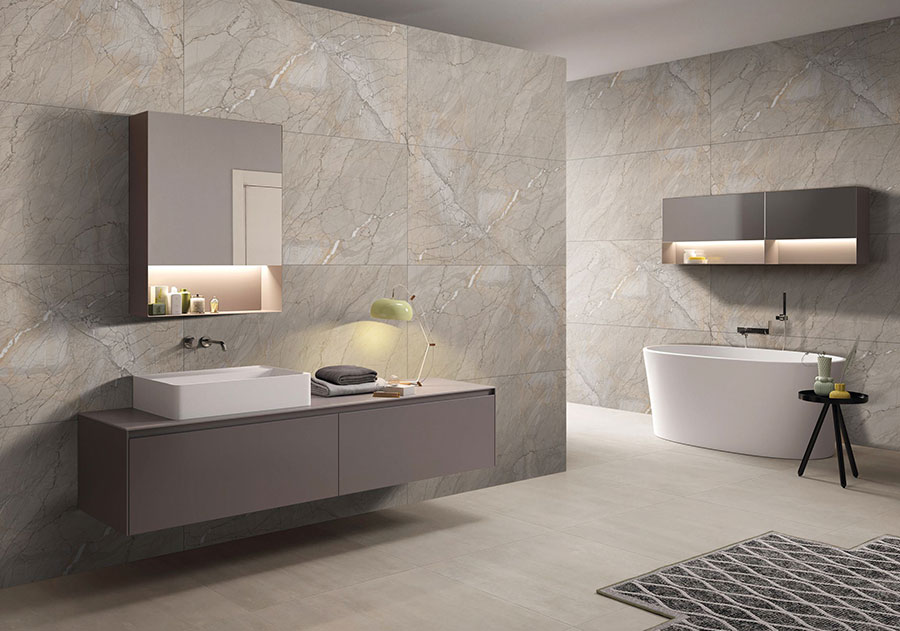
Porcelain tiles are made through a process that involves several stages:
Raw materials:
The main ingredients in porcelain tiles are finely ground sand, clay, and feldspar. These materials are mixed together in specific proportions to create a uniform and consistent mixture.
Wet milling:
The mixture is then wet milled to form a slurry with a fine texture.
Spray drying:
The slurry is dried using a spray dryer to form a fine powder.
Pressing:
The powder is then pressed into tile shapes using a hydraulic press. The press applies pressure of several hundred tons per square inch to compress the powder and remove any air pockets.
Firing:
The pressed tiles are then fired in a kiln at high temperatures of around 1200°C to 1300°C. This process causes the particles in the tile to fuse together and creates a dense, hard tile that is resistant to water and stains.
Glazing:
The tiles can then be glazed or left unglazed. Glazing adds a layer of protection to the tile and also provides a decorative finish.
Finishing:
The tiles are then cut to the desired size and shape, and any surface imperfections are corrected.
The finished porcelain tiles are then packaged and shipped to retailers, where they can be purchased for installation in homes, businesses, and other locations.